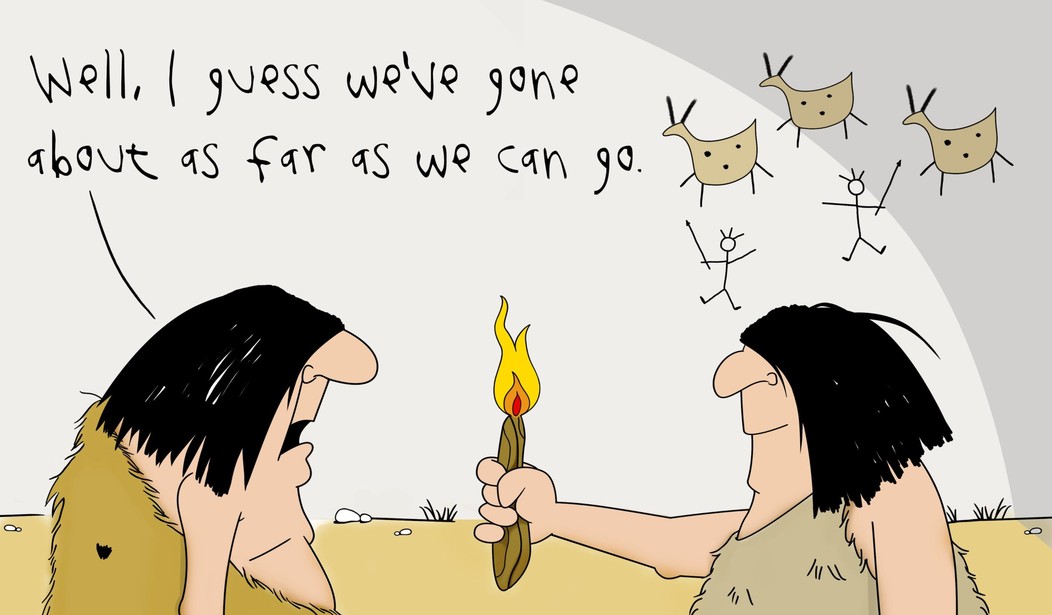You can’t make this up. Because whatever you do, chances are good that the deranged, self-loathing Left has beaten you to it:
When early humans discovered how to build fires, life became much easier in many regards. They huddled around fire for warmth, light and protection. They used it to cook, which afforded them more calories than eating raw foods that were hard to chew and digest. They could socialize into the night, which possibly gave rise to storytelling and other cultural traditions.
But there were downsides, too. Occasionally, the smoke burned their eyes and seared their lungs. Their food was likely coated with char, which might have increased their risk for certain cancers. With everyone congregated in one place, diseases could have been transmitted more easily.
Well, since Og & Co. had a life expectancy of about two decades, they probably really didn’t care too much about char and cancer. But where would the Left be if they couldn’t use the present as a club with which to beat the past? After all, they were all born yesterday and assume you were too.
Much research has focused on how fire gave an evolutionary advantage to early humans. Less examined are the negative byproducts that came with fire, and the ways in which humans may or may not have adapted to them. In other words, how did the harmful effects of fire shape our evolution?
A downside to the discovery of fire: It may have paved the way for smoking https://t.co/omcy6gWGdd
— The New York Times (@nytimes) August 5, 2016
I can’t even…
It’s a question that’s just starting to attract more attention. “I would say it’s mostly barroom talk at the moment,” said Richard Wrangham, a professor of biological anthropology at Harvard University and the author of “Catching Fire: How Cooking Made Us Human.” His work suggested that cooking led to advantageous changes in human biology, such as larger brains.
Except, obviously, in liberals.









Join the conversation as a VIP Member